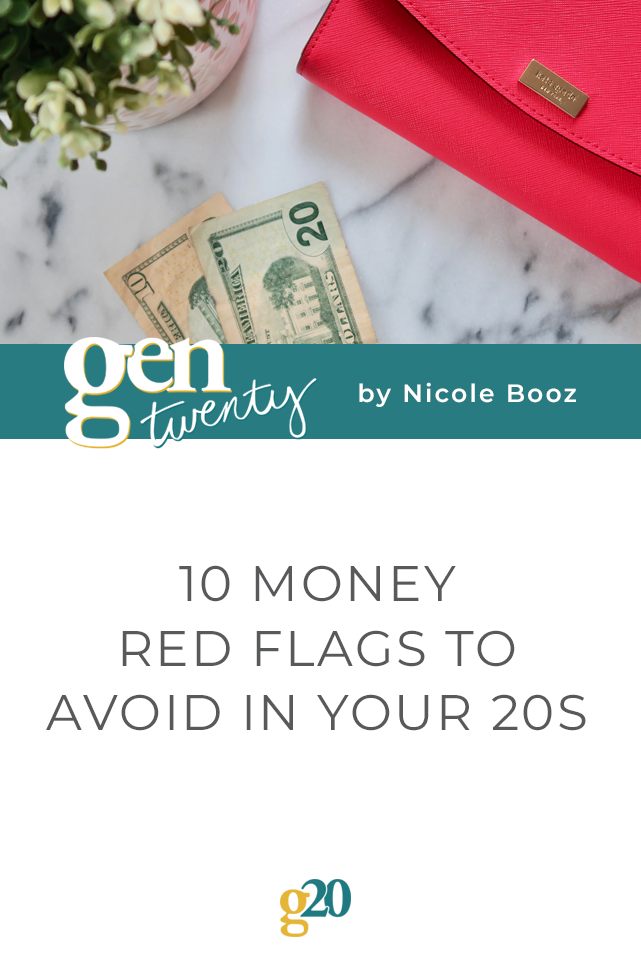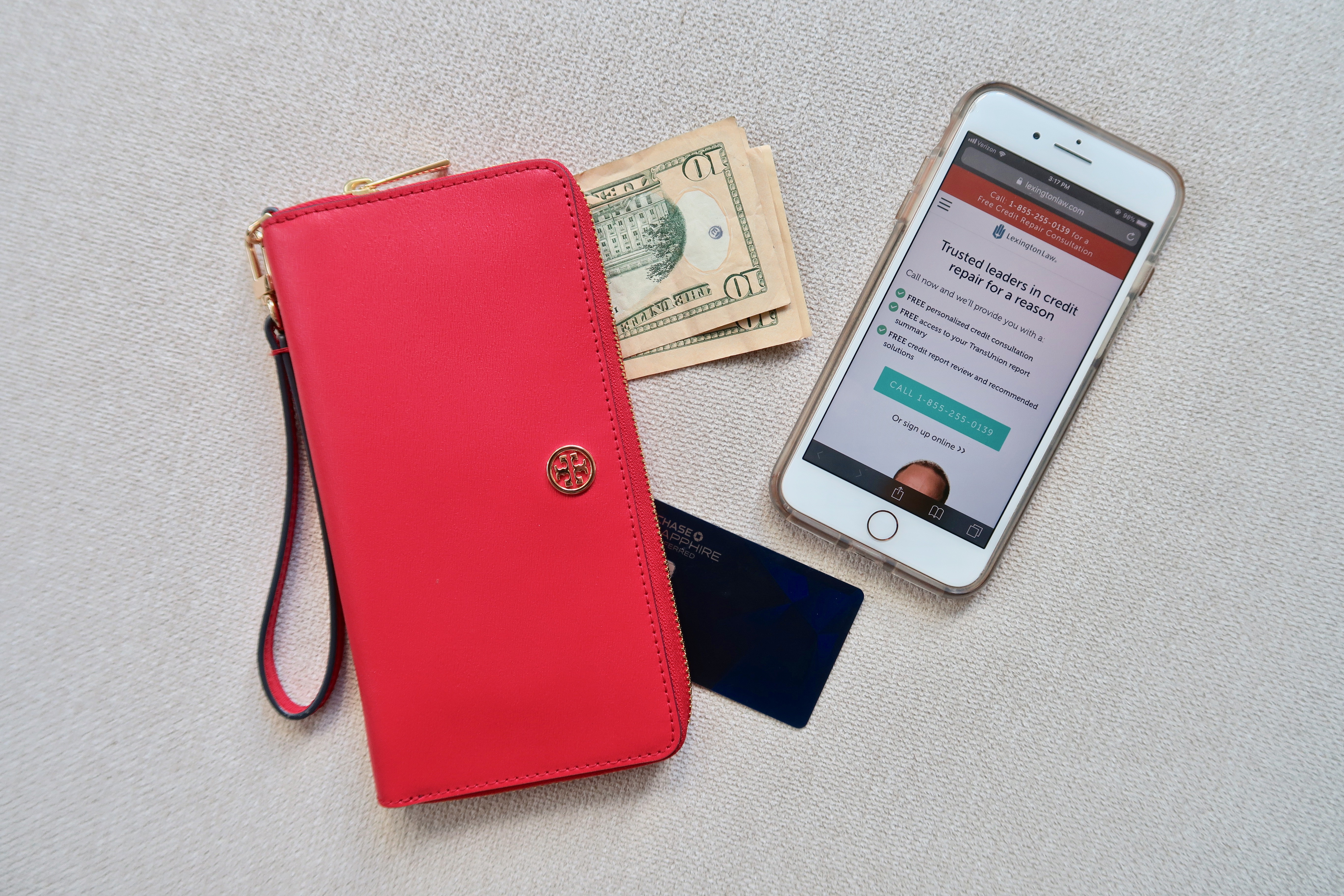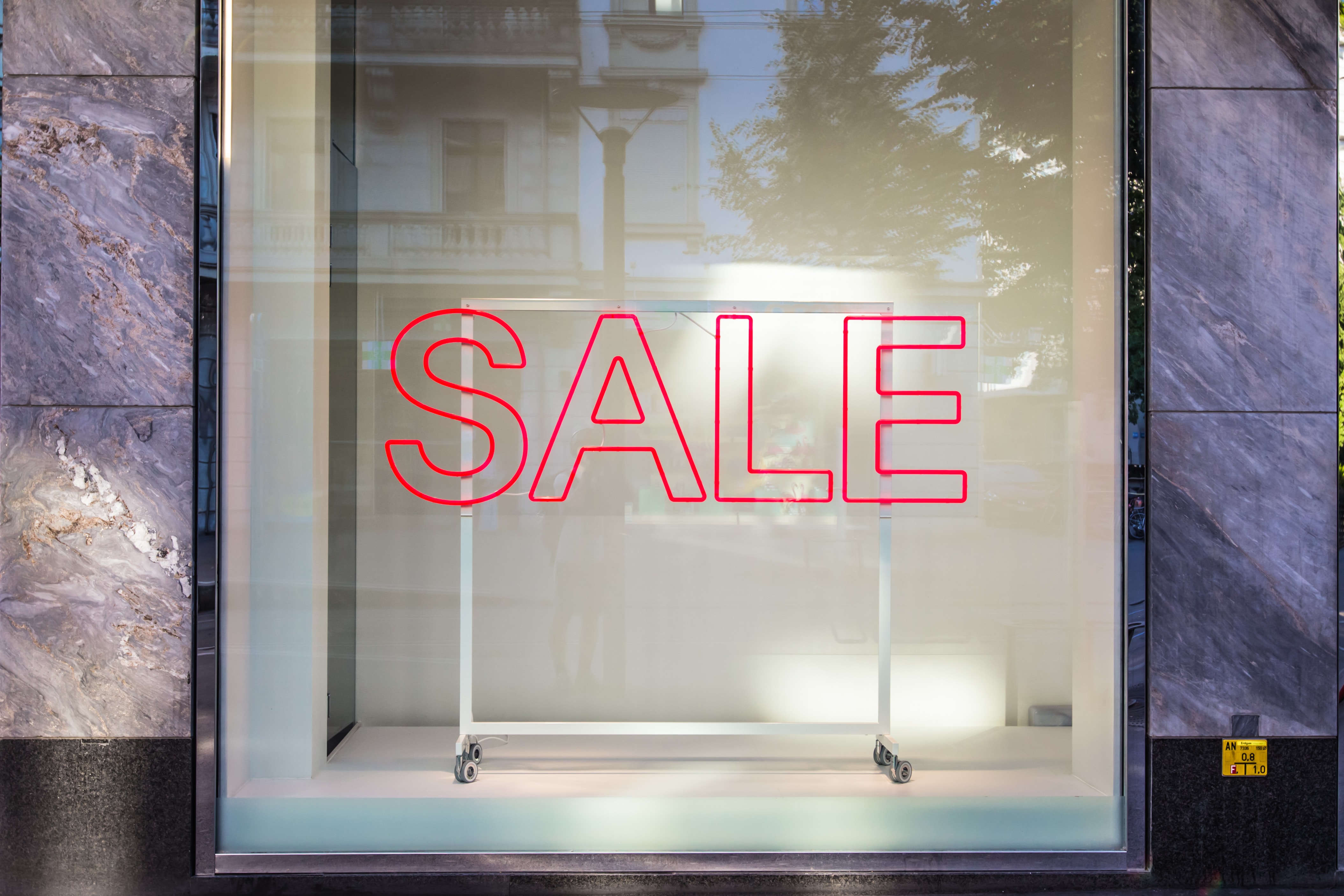This post is sponsored by Lexington Law.

A lot of people call the millennial generation a lot of things. Lazy, entitled… I could go on. But we’re also a generation of jokes, memes, and being #relatable. And I’ve go to give it to us, we really hit the nail on the head sometimes. Especially when we joke about money. Between student loan debt and underemployment, it’s no wonder we turn to these coping mechanisms to help us make it through the day.
But I’ve been thinking lately about what’s at the heart at some of these jokes. These thoughts and mindsets can become insidious and truly start to influence our financial habits negatively. A recent conversation with Marina led us to brainstorm the bad habits that are forming behind memes and jokes and how they might be a sign of habits we need to avoid forming. These are some things we know we’ve said in the past, heard our friends say, and some of them might even be something you’ve said in the past week.
10 Money Red Flags To Avoid in Your 20s
1. “I’m so broke.”
Sometimes I tell myself this as a mind trick to keep me from buying something. Other times, I know that it’s probably bordering on true because I’ve overspent again. We’ve all been there.
Being “so broke” isn’t something we should be striving to relate to. Broke is not a lifestyle. Broke is not an envious state of being. If month after month you’re running out of money before the end of the month (I’ve been there), then it’s probably a sign that some of your spending habits need to change. It’s also probably a sign that you could be making more money. Here’s my ultimate guide to increasing your income.
2. “I can’t afford this.” *proceeds to buy it anyway*
I was extremely guilty of this during my college years. My friends and I would go shopping and spend too much on things we didn’t need and clothes we’d never wear. That money would have better been put in my savings account, especially back then.
I saw something recently that said “If you can’t afford to buy it twice, then you can’t afford it.” While that might sound a little extreme, I dare to say that it’s a pretty good rule to live by.
Consistently buying things you know you can’t afford just kind of opens the door to push you deeper into debt. It’s very likely that your debt is costing you much more than just money. If you catch yourself falling into this state of thinking… warning bells should go off in your mind.
A lot of time when I think this, I know I’m just using the item in my hand to fill an emotional void. If that sounds deep, it’s because it is. Buying things isn’t going to make you happy, as we will talk about in number eight.
3. “I bought another [insert thing you know you didn’t need].”
For me it’s eyeshadow palettes, sweaters, and coffee mugs. There are some things in this life that I just have a hard time resisting and those three are it.
To help me stop accumulating things I really didn’t need, I put hard limits on what I’m allowed to buy. It’s been extremely helpful in limiting my purchases and making me think far more critically about what I can and cannot bring into my life.
For example, I only allow myself to buy five extra things every month. This doesn’t include “need” things like soap, toothpaste, body wash, etc. It’s more for the things that are completely extraneous and unnecessary. My other rule include that I am only allowed to buy one eyeshadow palette a month.
I’m trying to be better about spending my money on not only things that I want but things that I will use and add value to my life. It adds nothing to my life to buy something that is only going to sit around. Not only is it pretty wasteful but it clutters up my life and costs me money.
If you find yourself using this phrase, maybe it’s time to consider putting hard spending limits on yourself.
4. “I’ll pay it off next month.”
This one is particularly troublesome because it means you are currently and actively accumulating debt. Continuing to take on debt is not a good habit to fall into. It can be a slippery slope to think you’ll just pay it off next month or next year.
Using up your available credit is hurting your credit utilization ratio, which makes up 30 percent of your credit score. This is just one credit fact that works in your favor if you know how to use it appropriately.
Because your credit utilization ratio makes up 30 percent of your credit score, it’s important that you pay attention to those numbers. You can figure them out by calculating the percentage of your available credit that you’re using over the total available to you. I go into detail here on how to do that.
Your credit is so important and isn’t something you want to risk ruining, especially on frivolous items. If you have questions about negative items on your credit report, I recommend reaching out to the credit repair professionals at Lexington Law for a free consultation.

5. “I’ll pay you back when I get paid.”
If you’ve ever loaned money to someone, you know better than to ever expect it back. As a general rule of thumb, I never loan money that I need to cover my own bills.
Not only can borrowing money put strains on your relationships, but it means you’re spending beyond your means. It also might be a sign that something unsavory is afoot. To avoid borrowing money from your friends or family, I recommend getting started on an emergency fund as soon as possible.
6. “Everyone has one.”
The new iPhone? A Gucci bag? A new car? A trip to Italy?
It’s easy to look at what other people have and wish for that yourself. It’s easy to whip out your credit card and buy it. But buying things just because everyone else has one is not a reason to buy something.
You should be spending your money on what matters to you. And if a new phone matters to you, then it’s okay to spend your money on it if you can afford it. It’s only hurting you, though, to constantly spend money on the latest and greatest just to try to keep up with the trends. Because the thing about trends is that they are always going to be ahead of you.
7. “It’s a good deal because [insert a reason here].”
We’re kind of programmed to want something because it’s a good deal. How many times have you purchased something you didn’t need or weren’t planning on getting because it was a good deal? I know I’ve fallen into the trap before.
One thing that helps me is to say to myself, “Something can be a good deal and you don’t have to buy it.”
It’s a good deal whether I’m the one buying it or not. But it’s the best deal for someone who was looking for it in the first place.

8. “I’ll be happy if I buy this.”
Happiness doesn’t come from things. An external item, no matter how wonderful, will not make us truly happy. Sure, it might bring us moments of elation. But these moments will quickly pass before we are on to the next thing.
Happiness, of course, waxes and wanes. We can’t always be happy — there are other emotions, too. And it’s human to experience them all. Relying on purchasing things to bring you happiness is a slippery slope, though. You’ll continuously be buying more things (and burning through money that could have been put towards other stuff like debt).
The next time you see something to that you feel like would make you happy, consider these questions:
- do you have one like it already?
- will this improve your life?
- can you live the next 30 days without it?
If you can answer yes to any of these questions… you can pass. Things can be cute, quirky, and fun and we can appreciate them without having to buy them and own them ourselves. Let the fact that such an item exists bring you happiness versus having ownership of said item.
9. “I’ll put it on my credit card.”
I believe that credit cards are great tools for building credit. Really and truly they can help you build your credit if you use them responsibly. Putting something you can’t afford in cash on your credit card isn’t being responsible. It’s spending money you don’t have in a moment of weakness.
You’re essentially borrowing from your future self. And the future version of yourself will be stuck paying off the debt.
If you start thinking about how you spend your money in terms of your current self, future self, and past self… you’ll probably start spending a bit differently.

10. “But it’s on sale.”
The only reason to buy something because it’s on sale is because you were headed to the store to buy it anyway.
If you consider that a sale only exists to help stores clear out their old inventory before bringing in the new, doesn’t it seem like stores are only trying to bait you into spending money? That’s how I’ve started to look at it.
If you’re talking yourself into buying something because it’s on sale even if you don’t really want it, it’s time to put the item down and walk out of the store.
These are just 10 money red flags you might catch yourself saying, most likely to justify (unnecessary) spending. And some of these red flags can be signs of financial habits that won’t do you any favors in the future.
